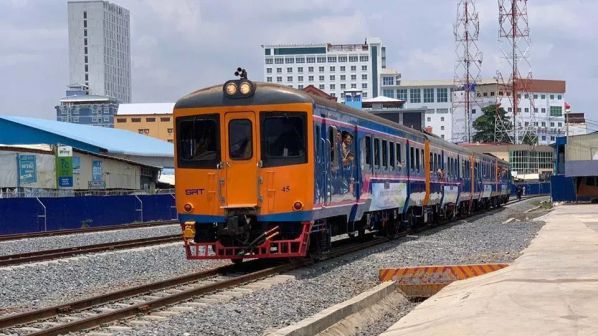-
Posts
520 -
Joined
-
Last visited
Content Type
Profiles
Forums
Downloads
Everything posted by ASEAN NOW
-
After weeks of dropping active case counts, Cambodia's active daily case numbers improved for the fourth day in a row. The official daily new COVID case total for today was 455, increasing the overall number of COVID cases to 93,510. With 15,232 instances being imported, the total number of Community Cases is now 78,278. In comparison to its neighbors Vietnam and Thailand, Cambodia's daily new cases per million people ratio continues to demonstrate a remarkable drop, as shown in the graph below. Today, 80 imported cases were declared, as the number of imported cases continues to rise as a result of the Thai border reopening on August 13th. The number of ‘Delta' cases in Cambodia continues to rise, with 164 new instances reported yesterday, bringing the total to 1916 in Cambodia. The worst-affected areas are Phnom Penh, which has over 600 ‘Delta' instances, and Banteay Meanchey, which has about 400. Despite the low official national data, the provinces continue to report high daily case levels, with Banteay Meanchey and Battambang reporting high figures. In addition, the province of Siem Reap has proclaimed two more "Red Zones" today. However, it is difficult to assess the true situation of COVID in Cambodia because to the ongoing absence of official daily case figures from Phnom Penh, Siem Reap, Sihanoukville, and many other provinces. Or Vandine, a spokeswoman for the Health Ministry, detailed Cambodia's future approach to COVID-19 in an interview with Khmer Times yesterday, saying that the country must recognize that COVID-19 is here to stay and that it is time to "learn to live with it." “Learn to live with it, cope with it, face it, and overcome setbacks by following the government's preventive guidelines,” she told Khmer Times. “The situation with Covid-19 is improving day by day because people are willingly joining hands with the government to combat the pandemic.” This new policy could signal the gradual relaxation of some limitations, such as the reopening of schools in non-infectious areas — a step that could be aided by plans to vaccinate children aged 10 and 11 against COVID-19. Meanwhile, Dr Li Ailan, the World Health Organization's (WHO) Representative in Cambodia, informed Khmer Times that the general Covid-19 situation in Cambodia is improving, with decreasing trends in cases and deaths. “After more than five months of active reaction, this is really promising good news for Cambodia. It's the consequence of a combination of factors, including more effective execution of public health and social policies, as well as the good effects of Cambodia's remarkable Covid-19 vaccine deployment, according to Dr. Ailan. Cambodia also revealed 13 new deaths, bringing the total number of COVID-19-related deaths in Cambodia to 1916. New cases outnumbered recoveries today, with 328 new recoveries announced, bringing the total number of active cases to 2,473. Discover Cigna’s range of health insurance solutions created for expats and local nationals living in Thailand - click to view
-
Authorities in the Kasi District of Vientiane Province have confiscated and destroyed illegal timber. According to the Lao Phattana Daily, 170 pieces of hardwood were seized in Bouakxang Mountain in Kasi District's Nongsan Village. Authorities have agreed to auction off 94 blocks of illegal timber to raise funds for the government. The remaining 76 blocks of illegally harvested timber were destroyed as a deterrent to future unlawful logging. Meanwhile, locals have gone to social media to voice their anger at the authorities for destroying the timber. Users said, "Rather of destroying this fine grade hardwood, why don't authorities use it as useable material or create tables and seats for public schools?" According to Prime Minister's Order No. 15/PM, any unlawful timber left at the location where it was harvested must not be collected or stockpiled. According to the notification, timbers collected in excess of the allowed quota are confiscated and become the property of the state, with violators facing harsh penalties.
-
From today, the Mayor of Vientiane Capital has issued an emergency order tightening Covid-19 restrictions and instituting a curfew in the country's capital. Residents of Vientiane must strictly comply with the Prime Minister's order on measures for Covid-19 prevention and control, as well as new measures put in place under the order, according to a notification signed and sealed yesterday evening by Mayor of Vientiane Capital, Mr. Atsaphangthong Siphandone. The order cites the situation in surrounding countries, the flood of returning migrant workers from Thailand, and residents' refusal to follow Covid-19 rules on parties and gatherings as factors for the virus's resurgence in the town. New limitations and prohibitions will be in place until the situation is under control, according to the decree. Residents of red zones in Vientiane Capital are barred from entering other provinces, whereas residents of red zones in other provinces are barred from entering Vientiane Capital, with the exception of those who have been allowed by the Covid Taskforce. Parties and gatherings of any type are absolutely prohibited in all locations, and anyone who disobey this order will be detained in a state quarantine center or quarantine hotel, fined, and made to pay for any damages caused by their actions. Covid-19 preventive measures, including as wearing facemasks and practicing social distancing, must be in place at all times during meetings or conferences with more than 20 participants. Karaoke bars, entertainment venues, tourism sites, night markets, food gardens, pubs (including alcohol-serving grill and barbecue restaurants), theaters, snooker halls, massage parlors, spas, beauty parlors, and internet cafes would all be closed. Restaurants may remain open for dine-in service, but they must maintain social distance and close by 21:00. Fitness centers, gyms, badminton courts, football fields, petanque areas, martial arts stadiums, swimming pools, cockfighting rings, and other facilities that facilitate physical activities must close. From 22:00 to 5:00 p.m., road travel in Vientiane Capital is forbidden, with the exception of freight transportation vehicles, emergency vehicles, and vehicles belonging to the Covid Taskforce or government personnel performing their duties. Stockpiling or inflating the price of commodities is severely forbidden. It is illegal to spread fake news or disinformation in order to provoke confusion or fear. Except for freight transportation vehicles or those authorized by the Covid Taskforce, all customary and local borders are closed across Vientiane Capital, and transportation across the Friendship Bridge is restricted. Schools and educational institutions at all levels, including entrance examinations, will close across Vientiane Capital. According to the decree, the increased limits will stay in force until the community spread can be controlled.
-
Incoming British nationals who travel to Cambodia now appear to have the option of staying in one of four officially approved Alternative State Quarantine (ASQ) Hotels rather than being taken to a hotel reserved for British nationals, as was previously the case. In an official response to the Embassy of the United Kingdom of Great Britain and Northern Ireland in Phnom Penh, the Ministry of Foreign Affairs and International Cooperation of the Kingdom of Cambodia states that ‘with reference to the Embassy’s Note No. GB/MFA 68/21 dated 10 August 2021, has the honor to inform the Embassy that the Inter-Ministerial Committee to Combat COVID-19 has clarified that there have been no restrictions on British Nationals on choosing a quarantine hotel prior to their arrival in Cambodia. The Ministry has further the honor to inform the Embassy that the launch of quarantine hotel reservation service for travelers entering Cambodia through Phnom Penh International Airport, as stipulated in the Press Release dated 22 July 2021 of the Inter-Ministerial Committee to Combat COVID-19 (as attached herewith), is applicable to all travelers who wish to use this service’ The ASQ system, which includes the Sokha Phnom Penh Hotel and Residence, the Courtyard by Marriott Phnom Penh, Raffles Hotel Le Royal Phnom Penh, and Sofitel Phnom Penh Phokeethra, was previously unavailable to British nationals. They were instead directed to the OK Boutique Hotel on St. 174 in Phnom Penh. It's unclear whether British citizens who don't choose one of the ASQ Hotels will still be transferred there.
-
PM Hun Sen has directed the Minister of Education, Youth and Sports to explore the reopening of schools in non-infectious areas with all provincial governors once the COVID-19 outbreak appears to be under control. The Prime Minister urged the Minister of Education, Youth and Sports, H.E. Hang Chuon Naron, to meet with provincial and municipal governors to investigate the possibility of reopening schools – primary and secondary – in rural areas without risk of a virus outbreak, but health safety regulations must be strictly followed. He went on to say that in metropolitan areas with low infection rates and vaccination, online learning can be continued, or both in-class with safety distance and online learning can be used. However, only online learning is permitted in high-risk locations, according to the Prime Minister. “I propose that we think in a flexible manner and follow the real circumstances in each province where it is possible for schools to reopen or keep distance learning or a mix of in-class and online learning, otherwise our children and youth will lose their opportunity [to study],” he stated. The Prime Minister also voiced hope about the country's socioeconomic recovery, stating that herd immunity in Phnom Penh and Kandal provinces is a favorable indicator for the resumption of socioeconomic activity, especially education. As of Aug. 30, 1,518,488 children and youth aged 12 to 18 years old had received their first dose, accounting for 77.20 percent of the almost two-million target, while 304,519 had already received their second dose. In the target population of 10 million adults, 9,175,478 people (91.75 percent) had received their first vaccination, with 8,153,574 being fully vaccinated. 610.428 booster doses have been given to frontline officials from all over the world. Cambodia's total population of 16 million people has been vaccinated to the tune of 66.84 percent. Students under the age of 12 who have not been vaccinated can also attend school, according to the PM. He recommended a flexible approach, with each province's practice being followed. It is vital to blend learning, both directly and online, where it is feasible to open, where it is not possible to open, implement distance learning, and where it is possible to learn in a variety of methods.
-
A total of 2,132 migrant laborers have been deported from Laos' Golden Triangle Special Economic Zone (SEZ), with a minor proportion of them testing positive for Covid-19. The migrant workers returned from Laos via Tarchileik Township between July 30 and August 24, according to eleven Myanmar reports. 196 of the 2,132 people who returned tested positive for Covid-19 and were allowed to return to Myanmar under Myanmar's Covid-19 rules. Since August 1, the Tarchileik Township Covid-19 Prevention, Control, and Treatment Committee has conducted medical examinations and Covid testing on 2,132 Myanmar migrant laborers, identifying 196 infected with the coronavirus. The infected patients have been transported to Tarchileik Township's Wunlon Quarantine Center, while the remaining staff will return to their homes. Unrest in the Special Economic Zone Hundreds of Myanmar laborers protested in the SEZ in early August, motivated by unemployment and dissatisfaction with Covid-19 prevention and control measures implemented during the SEZ's closure. Authorities in the SEZ mediated with the protestors, resulting in talks between the governments of Laos and Myanmar to find a solution for the employees' repatriation. According to Eleven Myanmar, thousands of Myanmar migrant laborers remain in the SEZ but will be repatriated soon.
-
To avert a third wave in Laos, the National Taskforce for Covid-19 Prevention and Control has advised the public to follow Covid-19 limitations. Dr. Lattanaxay Phetsouvanh, Director-General of the Ministry of Health's Department of Communicable Disease Control, believes the people must make a stronger effort to follow the government's Covid limitations and prevention measures. According to Dr. Lattanaxay, Laos is at risk of a third major outbreak of community spread due to individuals assembling in groups and having gatherings. Authorities are having trouble managing the amount of parties that are still being held across the country, despite Covid restriction orders, he added. “At the same time, people in workplaces, factories, and restaurants have come to take the limits for granted, failing to comply with Prime Ministerial Order 15/PM and other taskforce-recommended measures,” Dr. Lattanaxay stated. Authorities are now encouraging residents to avoid congregating in large groups and to stay as close to their houses as possible. “Despite the fact that entry into red zones is forbidden, some residents continue to flout Covid laws by visiting and exiting red zone towns without permission,” he stated. Business leaders must take a bigger role in enforcing strict adherence to Covid policies and urging workers to act responsibly. Discover Cigna’s range of health insurance solutions created for expats and local nationals living in Thailand - click to view
-
According to preliminary forensic findings, two remains discovered in a hole in Phnom Penh appear to be victims of a vicious attack. Local locals reported to police at 7:30 p.m. on August 27, 2021, that they had discovered two sets of skeletal remains buried in different pits on a hill in the capital's south, in Kamrieng hamlet, Sangkat Kantouk, Khan Kampol, Phnom Penh. Both people appear to have died roughly 6 months ago, according to a source. The male victim looks like he was shot in the head, while the female victim looks like she was strangled. According to the same account, the killer brought the bodies to the hill after the killing and buried them in two small trenches about 8 meters apart. The two bodies are currently being identified, as well as the motivation and perpetrator of the crimes, by police.
-
After securing the return of a tanker and the crew that allegedly carried it away, the Cambodian government will pursue legal action against individuals involved for the theft of millions of dollars in oil. This comes after the Indonesian navy announced on Wednesday that it had apprehended the Bahamian-flagged tanker MT Strovolos, which Cambodia claims is carrying nearly 300,000 barrels of crude worth $21 million stolen from Singapore-based KrisEnergy, which had been granted oil drilling rights in the Kingdom. Phay Siphan, a government spokeswoman, emphasized yesterday that the tanker was arrested because it entered Indonesian seas without permission, not because of a complaint from Cambodia. “Because the ship entered their land illegally, it was confiscated. “We (Cambodia) were completely unaware of their detention,” he claimed. He went on to say that the Cambodian government had pleaded with Indonesian officials to help secure the tanker's return. On July 30, Cambodia's Ministry of Justice, Ministry of Foreign Affairs, and Ministry of International Cooperation filed a formal complaint with Interpol regarding an oil company's theft of 300,000 barrels from the Gulf of Cambodia. When the Indonesian authorities release the detained vessel and crew, a spokesman for the Ministry of Justice, Kim Santepheap, stated on Friday that the two ministries, as well as International Cooperation, will take legal action. He noted that the ministries will request legal cooperation and extradition (Cambodia-Indonesia) through the ASEAN Agreement on Mutual Assistance in Criminal Matters. Cambodia would also request Indonesia's cooperation in handing over all evidence and the vessel for legal action and trial under Cambodian law, according to Santepheap. Although Indonesia has yet to extradite the culprits and hand over the vessel, Santepheap stated that the two governments will employ international treaties, transnational crime, and the Asean agreement as legal processes in this matter. He went on to say that smugglers of crude oil from Cambodia to Indonesia will face charges under Cambodia's special law on "administration, use, and disposal of state property" as well as "violation of state public property." Cambodia "wants our oil back in our country," said Koy Kuong, a spokeswoman for the Foreign Affairs Ministry, to the Khmer Times yesterday. KrisEnergy announced in June that business was entering liquidation and that exploration in Cambodia had been ceased. Two months after Cambodia's first oil venture failed, attention has shifted to the fate of millions of dollars in oil pumped from the country's offshore concession before production was suspended, with the focus now on the ship captured by Indonesia. The MT Strovolos, its captain, and 19 crew members were apprehended by a patrol boat off the coast of Indonesia's Riau on July 27, according to the navy. According to the navy, the tanker was anchored in Indonesian seas "illegally" with its transponders switched off and loaded with 297,686 barrels of petroleum. The tanker was also brought to a neighboring base, and everyone on board was imprisoned, including the Bangladeshi captain and crew — 13 Indians, three other Bangladeshis, and three Myanmar citizens, according to the report. World Tankers Management, the ship's Singapore-based operator, said in a statement late Wednesday that the oil was carried illegally and that the ship did not have authority to anchor in Indonesian waters. Cambodia's "wrongful claims" have resulted in "humanitarian concerns," according to the firm, which has requested the intervention of the UN Human Rights Office and "diplomatic channels." “Our team is completely blameless and innocent in this affair, and they should not be forced to bear the brunt of commercial and political issues,” the statement read. The company denied all allegations made by both the Indonesian and Cambodian governments that it was involved in oil smuggling, while also expressing concern for its crew after the Cambodian government requested that Interpol issue a red notice for their arrest in order to extradite them back to Cambodia. In a statement, World Tankers stated it loaded the crude on the premise that it belonged to its charterers, but that they had defaulted on payment and that its service had been cancelled. The company stated it had requested that the oil be removed by a ship-to-ship transfer at a "suitable and reasonable location" from "the proprietors of the cargo." However, “no agreement has been reached to allow this to happen,” according to the statement.
-
Authorities in Phongsaly Province have approved a feasibility study for the development and building of a new Special Economic Zone on the Lao-China-Vietnamese border. The Phongsaly provincial administration and China's Yujia Investment Co., Ltd signed a Memorandum of Understanding (MOU) on a feasibility study for the development and construction of a new "Triangle" Special Economic Zone (SEZ) at the Laos-China-Vietnam triangle site on Tuesday, according to Socio-Economic News. Ms. Khammala Souvong, Deputy Director of the Phongsaly Provincial Department of Planning and Investment, says Yujia Investment would conduct a feasibility study on the development of the Laos-China-Vietnam Triangle as a new SEZ within Laos in Phongsaly's Yot Ou District. “The organization has 18 months after signing the MOU to complete the survey and a feasibility assessment,” Ms. Khammala Souvong explained. A total of 250 square kilometers of land will be surveyed by the Chinese firm, with 100 square kilometers of service and tourism areas and 150 square kilometers of agriculture and industry sites. The company will plan a road link from Ou Nue Village to the new triangle SEZ's border, as well as undertake a land-use survey. Meanwhile, a design for the construction of the new triangular SEZ will be based on the project feasibility research, environmental and social effect assessment.
-
Normal life in the Kingdom can resume in a new way, according to the Health Ministry, if everyone continues to implement its anti-Covid-19 policies. If people continue to assist in stopping the transmission of Covid-19, Ministry spokesman Or Vandine said Cambodia expects to return to a new normal life in the near future and reopen schools for children under restricted settings. She stated that following the ministry's measures is the duty of each citizen and individual. According to Vandine, the government and the people worked together to respond to Covid-19. Despite the discovery of Delta variant, sub-national authorities have fought tirelessly to keep the situation from spiraling out of control. In other news, Phnom Penh City Hall has continued to offer the vaccination to all Cambodians over the age of 12 who were not immunized during the initial campaign in the capital. The administration has announced that all citizens, parents, guardians, and the general public in Phnom Penh are required to participate in the Covid-19 vaccination campaign, and would like to remind everyone who visits a vaccination center to follow the health guidelines when standing in line by maintaining social distance, wearing a face mask, and strictly adhering to all of the three Do's and three Don'ts. The provincial administration of Banteay Meanchey recorded 230 instances of the Delta variant, which is the second largest number after Phnom Penh's 375 cases. On Wednesday, provincial governor Um Rathrey stated that the Delta virus in his province is mostly caused by laborers returning from Thailand. Provincial authorities have set up a new treatment center at Hun Sen Khla Kon Hospital in Serei Sophorn city to accommodate about 2,000 patients, according to Reatrey, and are currently preparing another treatment center at Eung Van Mao market in Mongkul Borei district, as well as a 3,000-person quarantine center in Poipet city's Nimit commune. For one week, from August 27 to September 2, the administration has decided to keep interim controls in place to prevent the spread of Covid-19 in the province. The province's curfew was also extended from 9 p.m. to 3 a.m., with the exception of civil servants and armed forces travel, emergency medical travel, transportation of products and groceries, and movement of strategic state commodities. Meanwhile, the Ministry of Health recorded 423 new Covid-19 instances Wednesday, bringing the total number of cases in the Kingdom to 90,958. Only 111 of the new cases are imported, with the rest being tied to the Community Event on February 20. Six more deaths were reported by the ministry, bringing the total number of fatalities to 1,841. There were also 291 new recoveries, bringing the overall number of recoveries in the Kingdom to 86,993.
-
Despite the success of the capital's immunization drive, Phnom Penh Governor Khuong Sreng stated that no curfew will be reinstated because it is unneeded. The governor praised the government's accomplishment in vaccination across the country, particularly in Phnom Penh, in an interview with Khmer Times. “We achieved 120 percent of the population [in Phnom Penh] who got jabs,” he added, adding that people were aware of the precautions. He also cautioned people not to believe that vaccines are magic bullets, and that they must continue to follow health precautions. “As a result, after the curfew is lifted, the cases begin to decline day by day, which makes us proud,” he added, adding that administrative procedures will remain in place. To prevent Covid-19, Phnom Penh City Hall prolonged the curfew from August 13 to August 19. However, it was started between 10 p.m. and 3 a.m. to avoid the spread of Covid-19. After the City Hall yesterday extended administrative restrictions suspending business activities designated as a high risk of distributing Covid-19, as well as public meetings for 14 days, there are some rumors that the curfew may be reinstated.
-
After the death of an inmate at a prison in Savannakhet Province, Laos has acknowledged its 12th death as a result of Covid-19. On Tuesday, a 35-year-old detainee at the KM6 Prison in Savannakhet Province died. On February 16, the individual, who lived in Nabo Village, Xayphouthong District, was arrested on drug-related allegations. On July 6, he was transferred to the KM6 Prison. The individual was tested for Covid-19 on August 23, but he died on August 25 before test results indicated he had been infected with the virus. There has been no word on whether or not the man's cremation will be commemorated with a ceremony. It's unclear whether the man had any underlying diseases that could have exacerbated his symptoms.
-
The National University of Laos (NUOL) club hall in Dongdok, Xaythany District, and the National Stadium at Km 16 in Xaythany are being considered as field hospitals for those infected with Covid-19 by authorities in Vientiane Capital. The National Taskforce Committee for Covid-19 Prevention and Control, according to a report by Lao Phatthana, plans to create field hospitals in Vientiane Capital to handle an increasing number of Covid-19 patients. Dr. Sommana Lattana, Deputy Director of the Ministry of Health's Department of Healthcare and Rehabilitation, said the NUOL's club hall and the National Stadium would be transformed for use as field hospital “Around 250 Covid-19 patients might be accommodated in two new field hospitals,” Dr. Sommana added. “In Vientiane Capital, there are already eight hospitals that treat Coronavirus patients, including Mittaphab Hospital, Setthathirath Hospital, 103 Military Hospital, Futsal Field Hospital in Houayhong Village of Chanthabouly District, Lanxang Indoor Statdium Field Hospital in Nonghai Village of Sisattanak District, and now NUOL and the National Stadium,” Dr. Sommana Lattana added. In the meantime, Covid patients have been treated at four hospitals in Champasack, three in Savannakhet, and three in Khammouane, while other provinces have relied only on their provincial hospitals.
-
Kampot Police raided a karaoke club where a drinking party was taking place, arresting seven men and women for violating administrative measures and curfew. On August 25, the arrest took place. Kraing Village, Kraing Ampil Commune, Kampot City is home to the karaoke bar. Veasna Sabay Sabay Karaoke Shop and Restaurant is the name of the karaoke bar. On August 25, at 9:30 p.m., Kampot City Police, under the leadership of the Provincial Police Commissioner, raided the karaoke bar. Seven persons were arrested after the crackdown for drinking and singing in a room in the establishment. According to the story, one of the seven people was the karaoke bar's proprietor, a female waitress, and the patrons were all from Kampong Kreng Commune.
-
Governor Khuong Sreng of Phnom Penh has prolonged administrative restrictions that prohibit actions that pose a high risk of transmitting COVID-19, such as public meetings, for a period of 14 days, beginning at 00.00am on August 27, 2021 and ending on September 9, 2021. The following activities, jobs, or companies are prohibited because they provide a significant risk of spreading COVID-19: * Both public and private vocational training schools are included in this category (but can provide online training) * Karaoke, pubs, discos, beer gardens, and casinos are among the various types of clubs. * Parks, resorts, museums, and playgrounds * Saunas and massage parlors * Liquor stores and businesses of all kinds * Movie theaters, art galleries, gyms, and various sports facilities. * All gatherings of persons for the purpose of consuming alcohol of any type are forbidden. Furthermore, meetings of more than 15 individuals are prohibited, with the exception of the following: * Get-togethers of family members who share a home or shelter * Organizing funerals in accordance with local norms and after submitting the bodies for COVID-19 virus testing, which yielded negative results. * Public meetings, gatherings, and meetings of health workers to carry out health measures such as collecting samples for COVID-19 testing and COVID-19 immunization. * Gatherings of medical personnel who are involved in various types of emergency situations * Meetings of all levels of competent authorities and administrative entities to ensure security, order, and public order. * Public gatherings during judicial police officers' or the Trial Chamber's proceedings * Groups of people gathered for the aim of serving the public interest or other reasons as determined by the competent authority. All public meetings or gatherings of persons for the purpose of consuming alcohol of any type are prohibited.
-
Villagers near a dam in northern Laos are requesting that the dam's owner release water to prevent their rice terraces from drying out, citing an agreement reached with downstream towns when the dam was erected. The Laos-based Nong Hai Company owns and operates the 24.6 megawatt Nam Thea Dam in Xieng Khouang's northern province. It is one of a slew of dams erected by the landlocked country to generate electricity for export to neighboring countries and internal use. The dam in Nam Thea village has disrupted the natural flow of water, forcing farmers from nine villages downstream to battle to keep their rice paddies wet. “We need water to irrigate our fields,” says the farmer. A villager living near the dam told RFA's Lao Service that all of the crops are dry and decaying. “Upstream farmers have access to water, but those of us downstream are impacted by the dam. We don't have enough water for farming, so we're not sure what we'll do if the dam doesn't release water,” said one villager. The dam was built in 2019 and opened to the public in January of this year. Rice could be sown at any time before building began, according to the villager, and there was never a shortage of water for farming purposes. “Villagers will not be able to sow rice this year due to a lack of water. Many villages have been damaged, and their rice plants have all died, and their other crops aren't growing as well as they used to,” another villager told RFA. Nong Hai is not fulfilling the MOU it signed before construction began, according to a third resident, which promised that the dam must deliver water for villagers' farms all year. On Aug. 14, a large number of concerned villagers presented a list of demands for Nong Hai to a local government office. The farmers demanded that Nong Hai adhere to the terms of the agreed MOU, which calls for the dam to release water for agriculture, halt producing electricity so that they can utilize the water for irrigation, and pay them for their entire crop loss if the water is not released. The people said they would not be liable if the corporation refused and “something happened” to the dam. Authorities were investigating the issue, according to a local official, but the dam was so minor that it was unlikely to be the source of the downstream village's water problems. Farmers upstream are consuming too much water, according to a Nong Hai official, and the business is looking into it. Laos has built dozens of hydropower dams on the Mekong and its tributaries, and is planning to build another 50 as part of a plan to become the "Battery of Southeast Asia," exporting the electricity it generates to other Southeast Asian countries, namely Thailand. The Lao government sees power generation as a way to help the country's economy, however the dam projects are divisive due to locals being displaced without proper compensation, environmental impact, and dubious financial and electricity demand agreements.
-
The inaugural ASEAN-MRC Water Security Dialogue, held last week, presented three theme ideas linked to policy, technology, and cooperation that can assist Mekong and ASEAN countries in addressing existential water security concerns. “There is a rising need for sustainable paths to assure a water-secure area in the face of changing weather and hydrological regimes globally,” said Phonepaseuth Phouliphanh, Acting Chairperson of the MRC Joint Committee for 2021. “It requires regional governments and their partners to demonstrate leadership, creativity, and strategic collaboration.” Senior officials and experts at the policy level urged all parties and players to promote greater transparency and deeper participation in order to improve the long-term management of water and related resources across the ASEAN region. The two-day debate concluded last Friday with the need for progressive policy and institutional reforms that enhance integrated water resources management (IWRM). There were also calls for more regional and local integration, particularly in the areas of water resource planning, pollution management, early forecasting and warning, and public awareness. Technology, on the other hand, plays an important role. Digitalization and advanced modeling technologies, such as artificial intelligence and digital twins, are now among the most effective ways to manage regional water resource information. These techniques, when used together, improve local competence in managing water-related risks such as floods and droughts, as well as the quality and quantity of reservoir water. Delegates also proposed that more public-private partnerships be used and that engagement with a wide variety of institutions be pursued. Deeper involvement with the private sector can assist ASEAN governments in gaining access to new technology, while stronger regional collaboration can allow the interchange of IWRM expertise and stimulate long-term investments. “Over the years, the conservation of the region's water resources has been a vital component of ASEAN's work,” said Kung Phoak, ASEAN's Deputy Secretary-General for ASEAN Socio-Cultural Community. Mr. Kung emphasized the importance of promoting regional cooperation and strengthening links among ASEAN countries to address emerging water issues such as equitable access to safe and affordable water, enough water to ensure food security and support the region's economies, and long-term solutions to mitigate water-related hazards. More than 70 million people rely on the Mekong River as a source of income and survival, in part or totally. However, in many places of the larger ASEAN region, pressing transboundary concerns have reached a crucial juncture, necessitating deeper and greater regional integration to narrow development disparities. Environmental deterioration has increased during the more than 25 years since the MRC was created, according to recent modeling by the MRC on the impact of regional growth. Several proposals discussed at the meeting may serve as the foundation for a regional mechanism to improve dialogue and coordination. To address the impact of human interventions and disparities between countries, ASEAN countries and development partners must communicate more information and provide more technical and financial help. The First ASEAN-MRC Water Security Dialogue was founded on the ASEAN-MRC cooperation framework signed in 2018. Through improved cooperation and coordination, the MRC Secretariat and Lower Mekong countries, in collaboration with ASEAN Member States, are committed to realizing the 1995 Mekong Agreement's objectives and ASEAN's vision for water security by 2025. While the first ASEAN-MRC Water Security Dialogue focused on technical exchanges and solutions among ASEAN officials and experts, the second dialogue, set for 2023, may focus on policy discussions including a broader variety of stakeholders. ASEAN and the MRC will meet to explore how to turn the dialogue's core proposals into policy.
-
As extensive flooding devastated the seaside city of Sihanoukville yesterday, dramatic events emerged. Residents of Sihanoukville captured video of a man riding a motorcycle alone through a flooded region in Village 3, Sangkat No. 1 and shared it with Kampuchea Thmey TV. He is swept away by the flood, but looks to have been rescued by brave bystanders who sacrificed their own safety to assist a fellow human being.
-
Cambodia is on the right track with its resolve to overhaul public financial management through a financial management information system (FMIS). This encouraging development was discussed during a meeting of the Public Financial Management Reform Commission held by video conference on Monday and led by Aun Pornmoniroth, Minister of Economy and Finance. During the conference, Pornmoniroth praised and commended all technical and financial experts for their efforts in achieving this goal, despite Cambodia's difficult situation because to the Covid-19 pandemic. Pornmoniroth asked all officials to continue promoting and implementing all activities aimed at achieving the previously defined objectives. FMIS was established to completely support the Ministry of Economy and Finance's public financial management reform initiative. This program intends to strengthen good governance and transparency in national budget management, particularly in national budget expenditure, by raising management and accountability standards in the mobilization of all government current and capital resources. The major goal of the FMIS project is to strengthen the country's financial data system. To ensure the success of the FMIS project, the Ministry of Economy and Finance established the Information Technology Department to oversee it as a critical initiative in Cambodia. It aspires to convert all financial procedures from a largely manual system to a far more reliable computer-based approach. “By continuing to execute these new work procedures in ministries and institutions and extending the projects to 25 provincial administrations, the FMIS has been strengthened and expanded,” Pornmoniroth added. The International Public Sector Accounting Standards Board (IPSASB) Cash Basis report has increased compliance under this approach. Meanwhile, procedures governing the management of state property and its titles have been steadily improving. FMIS has officially opened 358 sites with a total of 1,662 users since 2020.
-
The government's tax-exemption status for restaurants and hotels is slated to expire on September 30, and the authorities have yet to decide if it will be renewed after nine prior rounds of amnesty. In 2019, the restaurant business accounted for almost 19 percent of total GDP growth. In 2020, revenue plummeted by 50%, and Cambodia Restaurant Association (CRA) President Arnaud Darc warned at a seminar yesterday that 2021 isn't looking much better, with the business already down 60% from last year. During an online webinar on Cambodia Restaurant Tax, Darc noted, “We estimate that the share of consumers dining in sit-down restaurants has decreased 85 percent since the pandemic began.” The Almond Group's CEO, Chef Luu Meng, told the Khmer Times that extending the tax exemption is "the most critical problem" for the sector. “We'd like to see the government extend it until the end of 2021, ideally early in 2022. When business travel starts at the end of 2021, we will be able to pay taxes to the government,” said Meng, who is also the head of the Cambodia Tourism Federation. Many enterprises would not have been able to continue functioning if tax exemptions had not been granted, he said, and employment figures may have suffered as a result. “Right now, the most essential problem is the government's tax exemption for tourism-related firms. Businesses require funds to cover costs such as facility maintenance, rent, and employee compensation. Maintaining it will enable businesses to remain open and employees to remain employed,” Meng added. During the webinar, Eng Ratana, director of the General Department of Taxation's (GDT) Department of Large Taxpayers, stated that he had no idea whether the tax amnesty will be extended. Ratana stated that the government will decide whether or not to extend the grace period based on the current situation of the pandemic, adding that he has ceased dining out. “We don't know what will happen [with the tax exemption] or how the pandemic will play out. We hope it will go away, and we understand that the tourism industry is the hardest hit,” he said. After inbound flights to Siem Reap town were canceled, the government implemented its first set of actions, according to Anthony Galliano, group CEO of Cambodian Investment Management Holdings. Prior to expanding to the capital and the provinces of Kep, Preah Sihanouk, Kampot, Bavet, and Poipet, businesses in that province were granted tax amnesty. “Over the last 16 months or so, the government has sought through a series of rounds to support the restaurant and hotel industry during this very tough time,” Galliano said. He also said it's difficult to say how long tax exemptions for the tourism business will endure, but that they usually last two to three months. He also said it's difficult to say how long tax exemptions for the tourism business will endure, but that they usually last two to three months. Galliano noted that because there is no precise timetable for when the pandemic will stop, periods of uncertainty will continue, making it difficult to forecast when exemptions would end. “Despite government support, the hospitality sector is fast declining, and a recovery strategy that incorporates tax incentives to incentivize investment that fosters longevity and sustainability is needed. He stated, "The silver bullet might very well be refining the small taxpayer category, which provides significant tax perks and advantages." Foreign nationals registering as small taxpayers, according to Galliano, is "nearly impossible." “Given that small taxpayers charge VAT [value-added tax] at 10% yet pay over 2% with no withholding tax except on rent and salaries, have simplified tax forms, lower profit tax levels, lower patent tax, and are not subject to audits,” Galliano stated. According to the president of the American Chamber of Commerce, the government should raise the threshold for foreign-owned small businesses, allowing firms with sales of $500,000 or less to obtain the same benefits as small taxpayer Cambodian-owned businesses. Allowing limited liability firms to register as small businesses would “resurrect the industry, boost investment, and improve durability in the restaurant industry, which has a failure rate of 60% in the best of times,” he added. Last year, the GDT implemented 83 tax reform initiatives, including eight avoidance of double taxation agreements. The government is presently negotiating DTAs with seven other nations, including Macao, Myanmar, the Philippines, Lao, Japan, Turkey, and Slovakia, according to Ratana. Negotiations with Macao are reported to have already completed, and both parties are preparing to sign the deal. Early February is thought to be the start of talks with Laos.
-
The Royal Government of Cambodia has issued a Sub-Decree on Civil Servants, Employees, and Workers Holidays in 2022. There are now 21 recognised public holidays in Cambodia. Details are as follows: - 1 day off on January 1st, International Day of Peace. - 1 day off on January 7, Victory Day over the terrible dictatorship. - 1 day off on March 8th, International Women's Day. - 3 days off for Khmer New Year, April 14-15-16. - 1 day off on May 1st, International Labor Day. - 1 day off on May 14th, His Majesty King Norodom Sihamoni, King of Cambodia's Royal Birthday. - 1 day off on May 15 for the Vesak Bochea Festival. - 1 day off on May 19, Royal Plowing Ceremony. - 1 day off on June 18, the Royal Birthday of Her Majesty Queen Norodom Monineath Sihanouk, Cambodia's Queen Mother. - Constitution Day, September 24th, is a 1 day holiday. - Pchum Ben festival, September 24-25-26, 3 days off. - On October 15, Day in Honor of the Late King Norodom Sihanouk, His Majesty the King Father, Independence, - - --- Territorial Integrity and Khmer National Unity, 1 day off. - 1 day off on October 29 for His Majesty King Norodom Sihamoni, King of Cambodia's Royal Ceremony. - 3 days off in November during the Royal Water Festival (07-08-09). - National Independence Day, November 9th, is a 1 day holiday.
-
Seven Thai citizens who illegally entered Laos while mushroom hunting earlier this month have been deported by Lao police. After being discovered in the jungle collecting mushrooms and other forest goods, the party was captured in Laos. Thai authorities met the seven Thai villagers at the Vang Tao – Chong Mek Border on Friday after they finished a 14-day quarantine at a state quarantine center in Pathoumphone District, Champasack Province, according to Workpoint Today. They each received a punishment of LAK 2 million (THB 6,000) and were deported to Thailand. After then, the group was quarantined for another 14 days in Yang Noi Village, Khueang Nai District, Ubon Rat. One of the members of the group, a 27-year-old lady, said the Lao authorities took excellent care of her throughout her confinement. She claimed that, contrary to social media allegations, no one in the party received a Covid-19 immunization while in Laos. Another group participant, a 33-year-old guy, said Lao officials sent him and his pals for Covid testing and then kept them in isolation to monitor their symptoms, but they did not receive a Covid vaccination. The party of seven Thai citizens were foraging in the jungle at Bug Tee, a natural border between Ubon Ratchathani, Thailand, and Thoung Guang Village, Phonethong District, Champasack Province, Laos, when they strayed into the border.
-
Authorities in Vientiane Capital have started talking about how to clear clogs in the capital's wastewater drains. According to a Pasaxon Newspaper story, the Ministry of Natural Resources and Environment, as well as associated sectors, held a conference to propose solutions to the city's long-standing problem of clogged wastewater drainage systems. For many years, foul-smelling standing water and overflowing sewers have been a chronic problem in the capital. Xiengyeun Village, Oup Mong, Nong Douang, Nongbouathong, Phonkham, Hong Kaikeo, Phonphanao, Viengchalern, Thong in Anou Village, Khouakhao in BeungKhayong Village, Dongpalan-Hong Kae, and Phonthan are among the Vientiane neighborhoods with wastewater drainage issues.
-
The Ministry of Public Works and Transport is working on a railway development strategy to modernize and improve train transportation. Sun Chanthol, Senior Minister of Public Works and Transport, announced the approach at a meeting of the Infrastructure and Regional Integration Technical Working Group. According to Chanthol, Cambodia's railway development strategy is in line with the country's growing transportation need. “Rail freight traffic has expanded dramatically in recent years, and I hope to see rail freight expand in Cambodia and assist to minimizing road damage,” he said. After the railway development strategy is completed, the ministry will submit the document to the government for final approval in the near future. Cambodia has two railway lines: one between Phnom Penh and Banteay Meanchey, and the other connecting Phnom Penh and Sihanoukville, the country's deep-sea port. Under the railway development investment scheme, the government granted Royal Railways, a subsidiary of the conglomerate Royal Group, the concession for management. The ministry has also approved a feasibility study for a railway line between Phnom Penh and Bavet city in Svay Rieng province by China Railway International Group. Bavet City is located near the Vietnamese province of Tay Ninh. According to the government, the study is now being completed. The Cambodia Logistics Association's president, Sin Chanthy, praised the government's initiative. “In order to build the logistics sector, we need efficient transportation infrastructure — roads, railways, and waterways,” he stated. “Railway development is included in the national logistics master plan, therefore we expect the government and the Public Works Ministry to advance the plan soon,” Chanthy said. According to a report commissioned by the Organisation for Economic Co-operation and Development (OECD) and released in July, transportation and logistics account for around 8% of Cambodia's GDP, but existing laws have hampered expansion, making it more expensive and lowering competitiveness. “One of the things we discovered is that logistics expenses account for around a fifth of the overall cost of every commodity sold on average in Cambodia,” said Ruben Maximiano, an OECD senior competition expert.
.png.3b3332cc2256ad0edbc2fe9404feeef0.png)



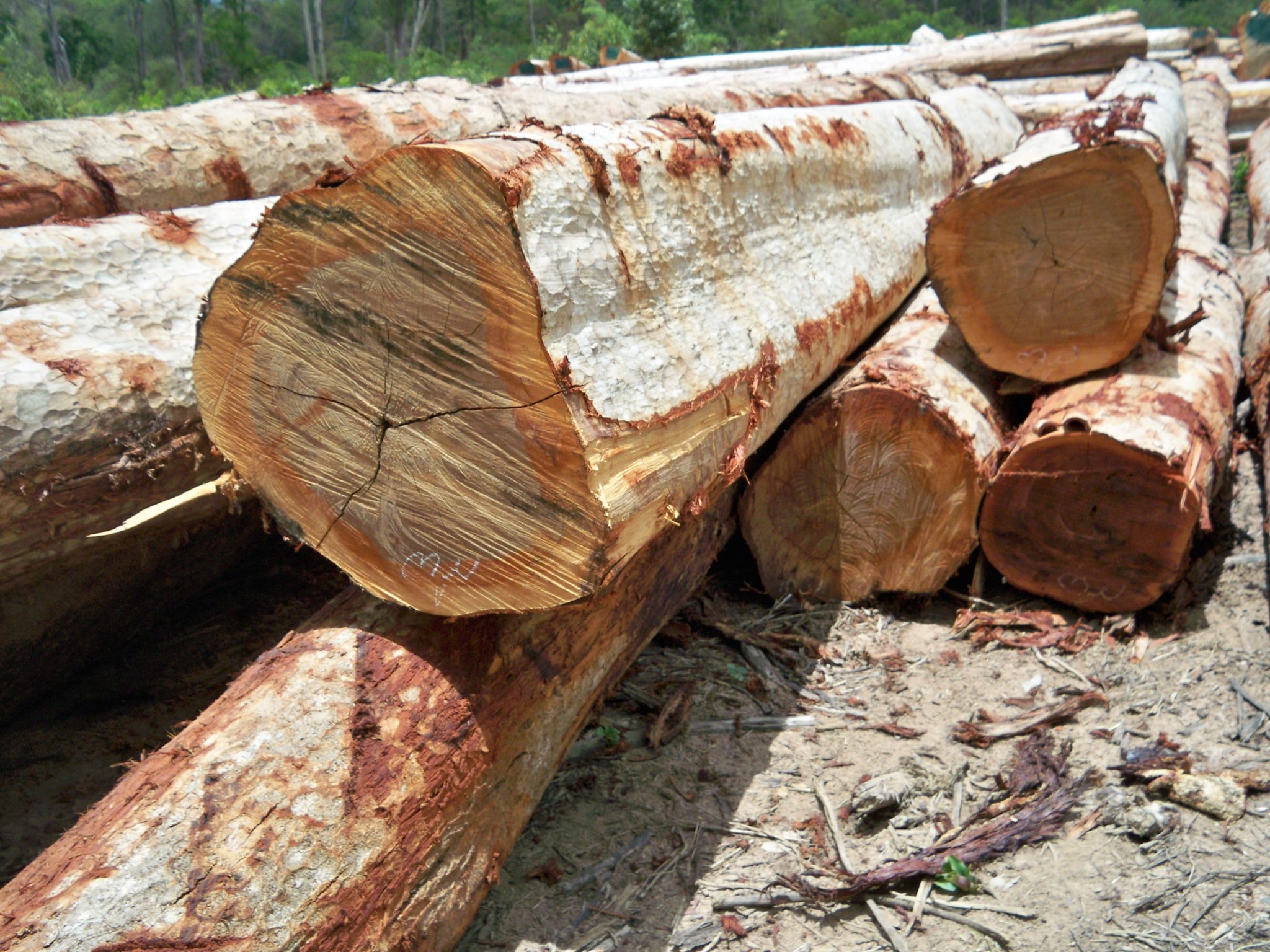
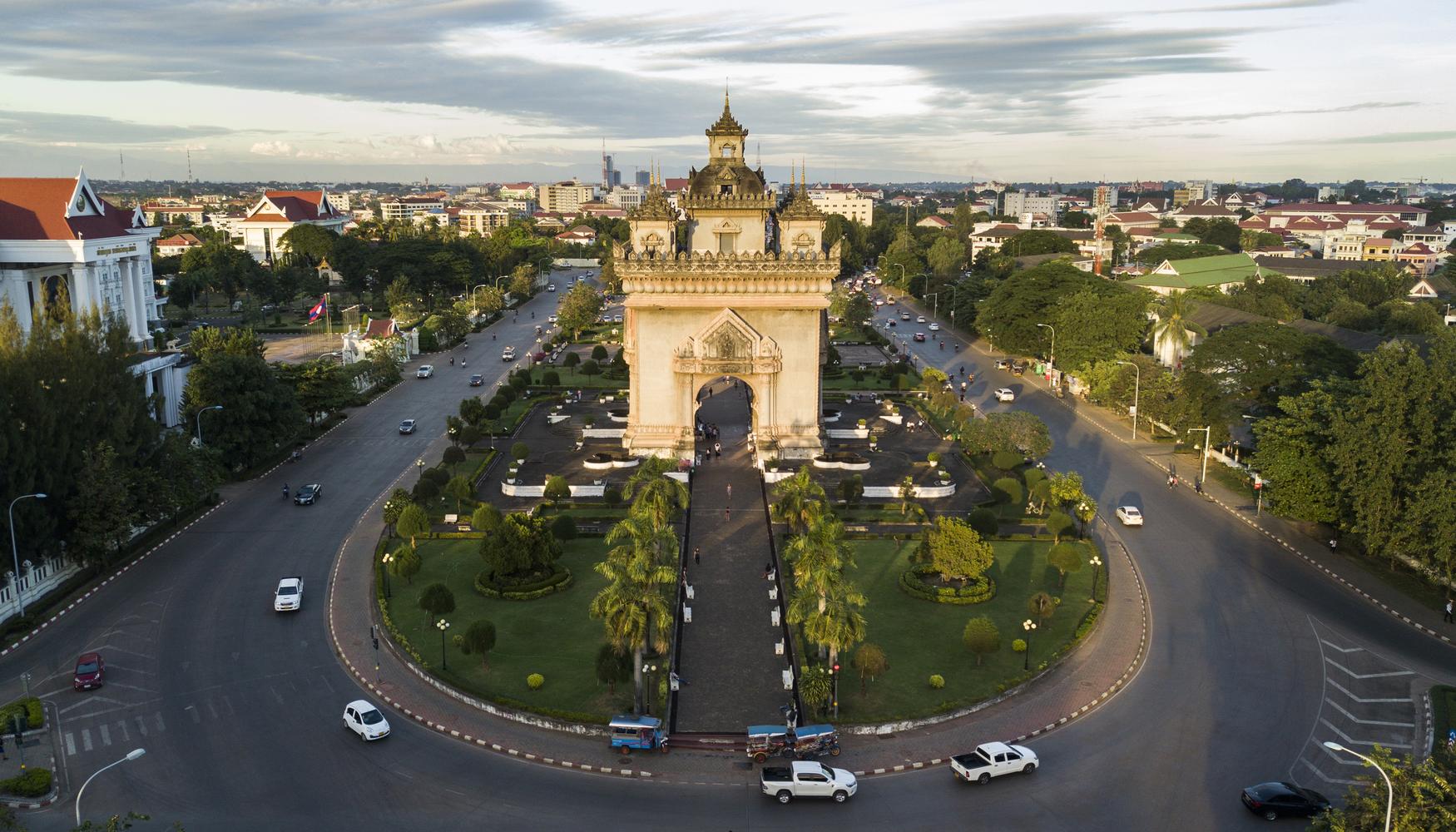
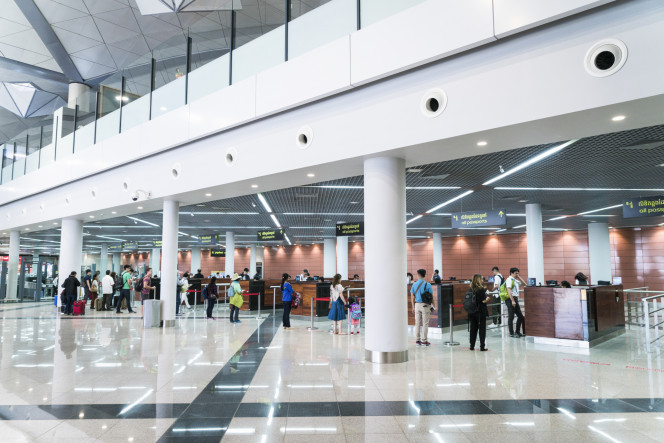

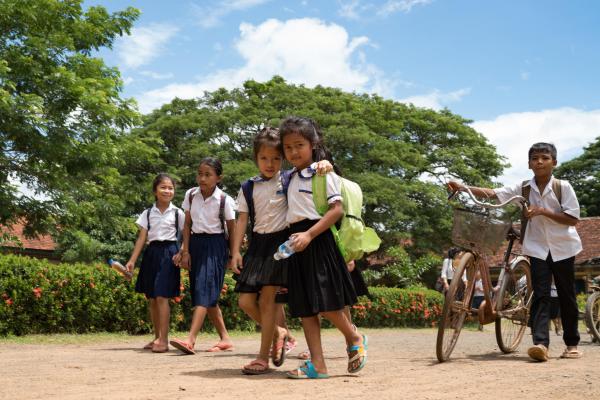
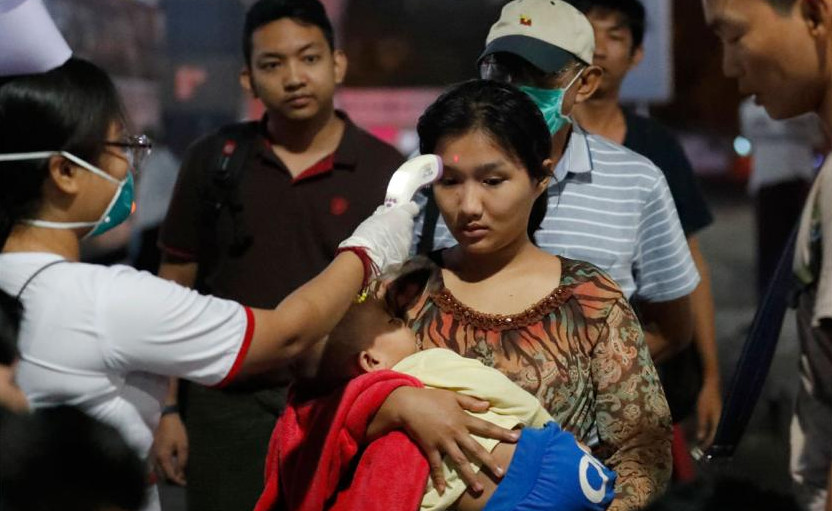



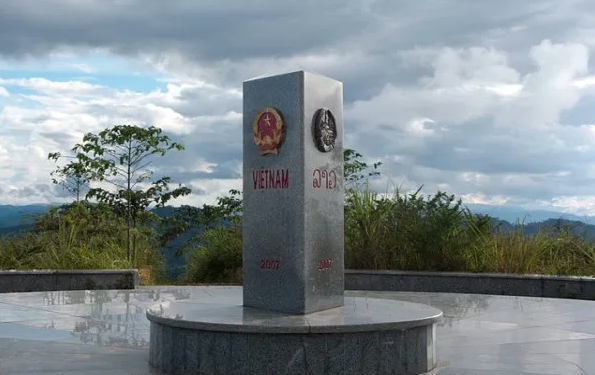
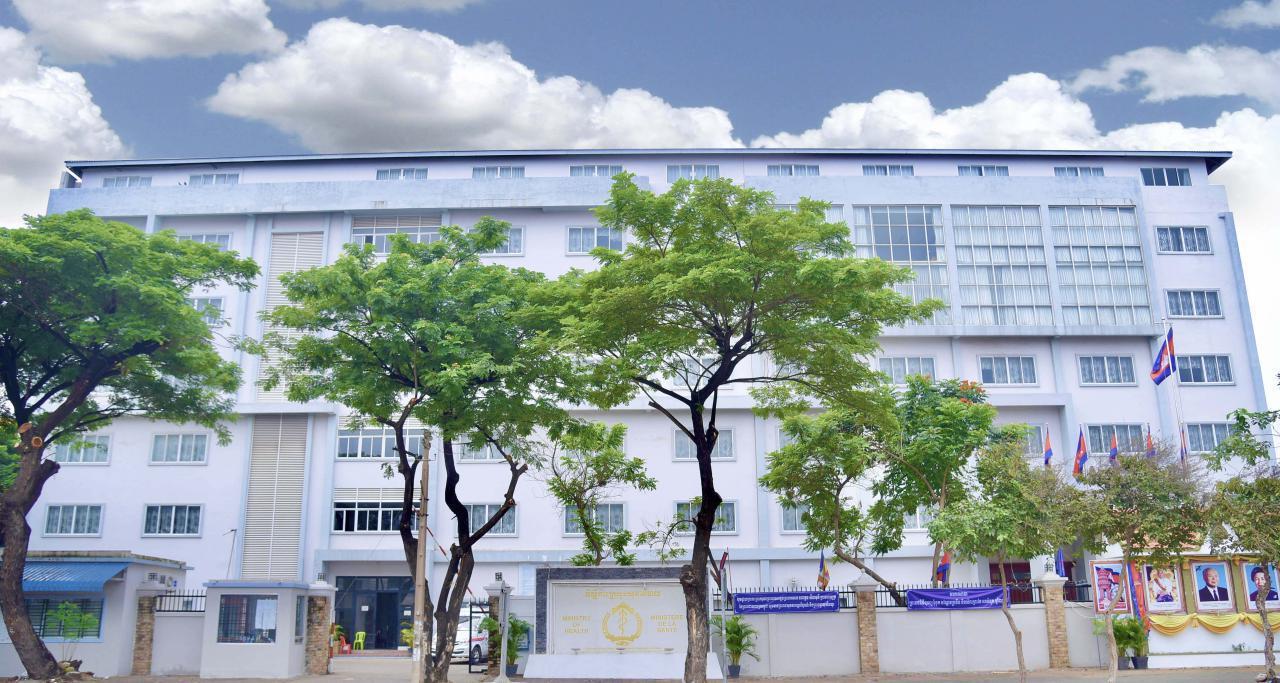

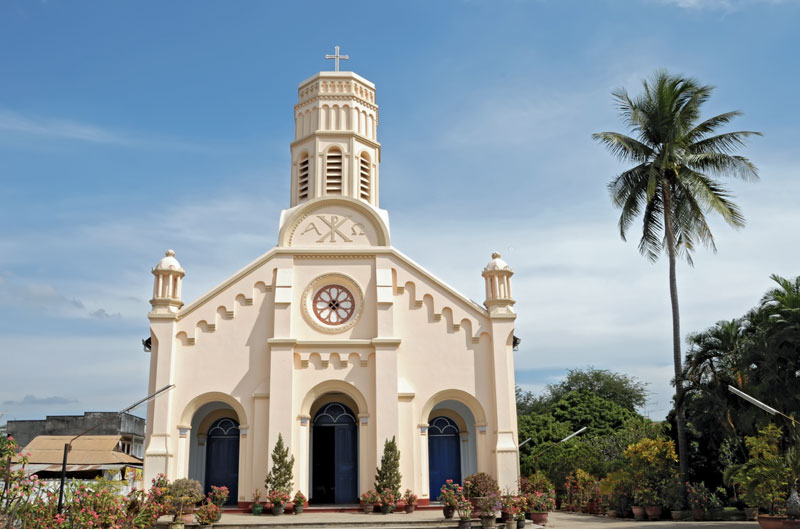
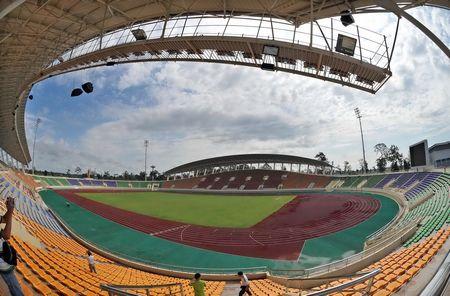
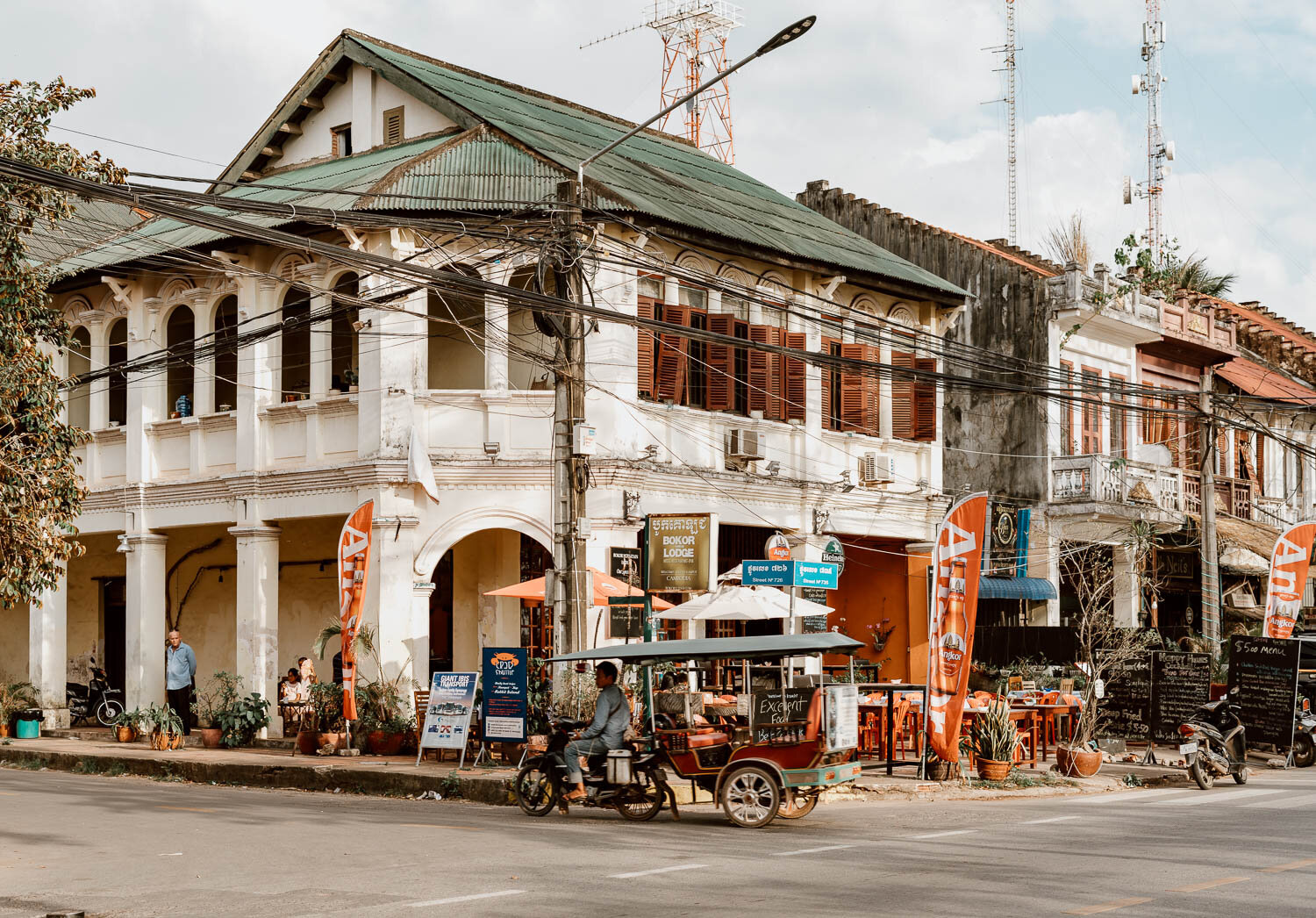

.thumb.jpg.f3583de0aff8e89d90bfd6774b5915ec.jpg)
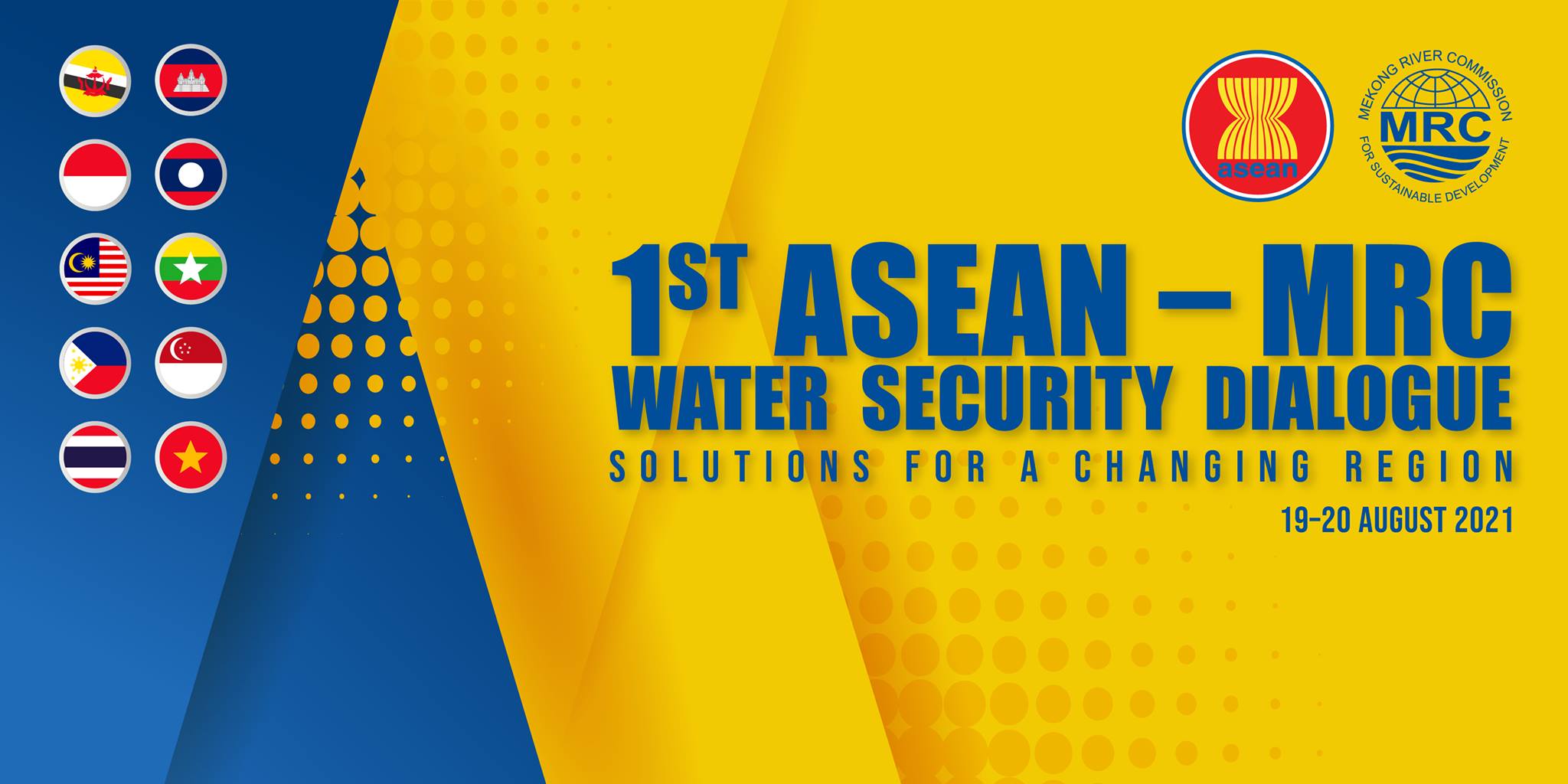
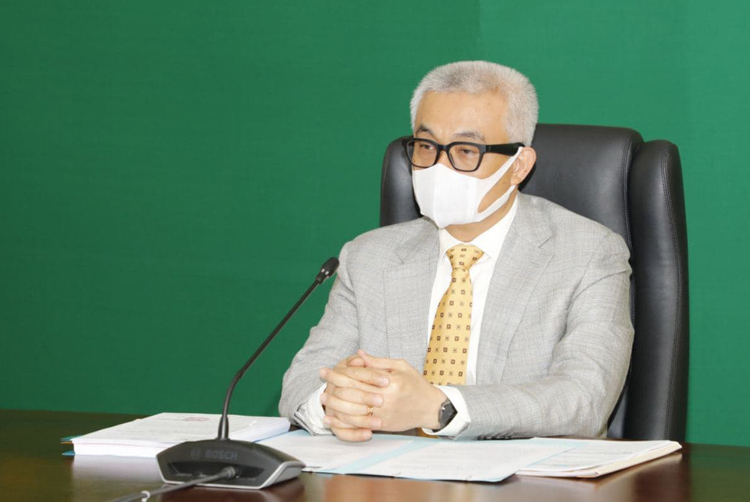
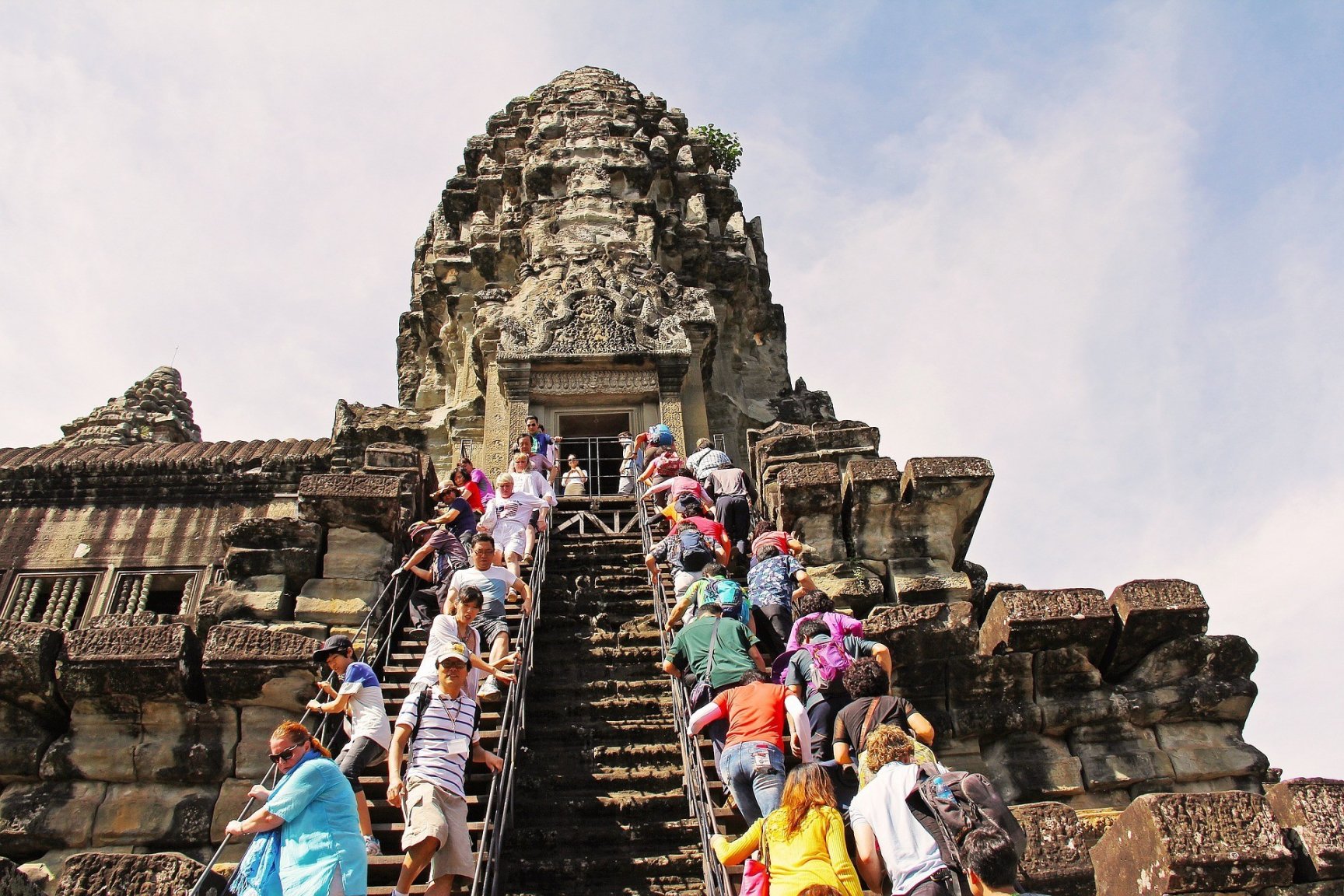

.jpg.7a742d2bd588036851a53acc92772a44.jpg)

